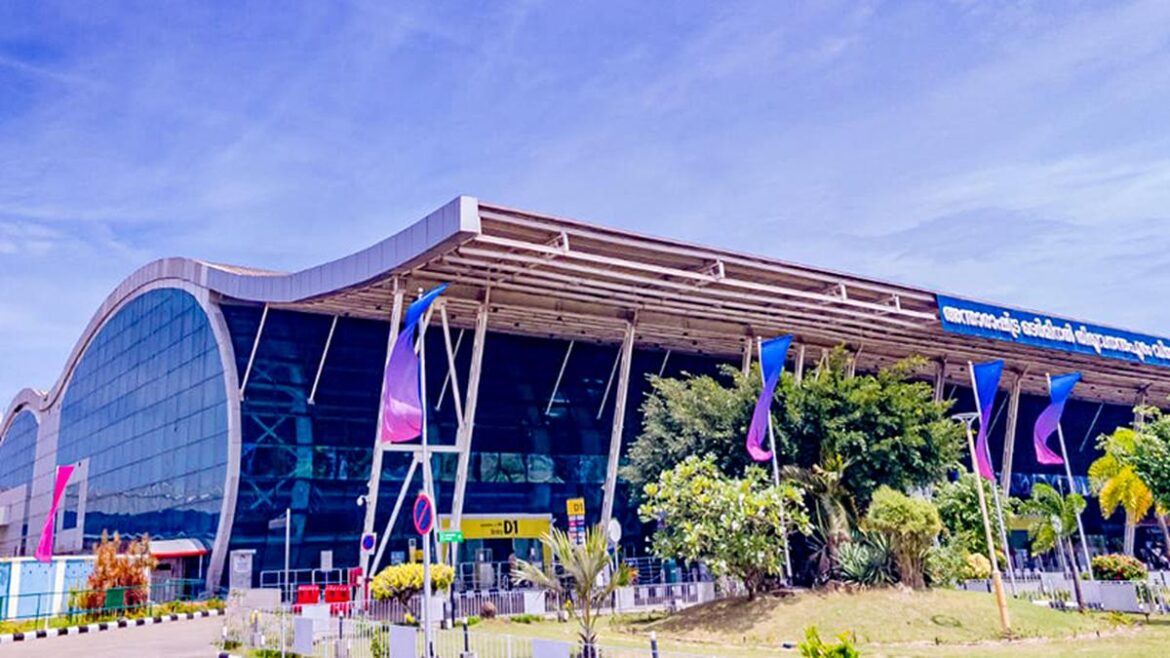Thiruvananthapuram airport tariff raised due to under-recovery during Covid-19: Centre
The Union govt. also says that the hike in tariff is due to delay in revision due to privatisation

Thiruvananthapuram International Airport.
| Photo Credit: The Hindu
The tariffs to be paid by passengers and airlines at the Thiruvananthapuram airport were raised on July 1 due to the under-recovery of various fees during the COVID-19 pandemic as well as a delay in revising duties after the airport’s privatisation, the Union government informed Parliament.
Members of Parliament from Kerala sought a revision of Airports Economic Regulatory Authority (AERA)‘s June 21 order that had raised various fees. This included raising the user development fee (UDF) levied on passengers as part of the tickets by 50% from ₹506 to ₹770 for domestic travellers for a year; this would continue to increase every subsequent year. A user fee for passengers landing at the airport was also introduced for both domestic and international travellers.
The landing charges for aircraft were raised three-fold for the first time from ₹309 to ₹890 per metric tonne (MT) of aircraft weight.
In response to a question on the increased tariff from CPM MP John Brittas in Rajya Sabha, Minister of State for Civil Aviation Murlidhar Mohor said, “The COVID-19 pandemic significantly reduced traffic, leading to an under-recovery of ₹789.29 crores for the second control period. This amount had to be added to the revenue requirement for the current control period, as per tariff guidelines.”
Following the privatisation of Thiruvananthapuram airport, which was handed over by the Airports Authority of India (AAI) to Adani Enterprises Limited for operations, management and development in October 2021, the determination of tariff for the next control period was delayed as the concessionaire was prevented from seeking tariff increase for the next control period of 365 days from the date of taking over, he explained.
“This transition delayed the tariff determination process for the Third Control Period, resulting in a shorter period availability for tariff recovery, i.e. less than three years period against the full period of five years,” the Minister said.
Regarding the introduction of UDF for disembarking passengers, the government claimed that “this approach lessens the financial burden on airlines and embarking passengers. Similar charges are imposed at other airports, including Mangaluru, Manohar International Airport, Mopa, Goa.”
Responding to the question from the MP on whether the tariff regulator would review its decision, the Minister said, “AERA aims to optimally balance the interest of service provider and the end user and ensures that the airport operator maintains and operates the airport with reasonable return on investment consisting with risk profile.”
During the tariff determination process, the AERA had pulled up the airport operator for under-projecting its non-aeronautical revenue, which is used to subsidise costs levied on passengers and airlines. It also remarked that the proposed projections were lower than what AAI earned before privatisation and despite the effect of the COVID-19 pandemic. Later, in its tariff order, it raised the non-aero projections fourfold to ₹392 crore as opposed to ₹102 crore proposed by the airport.
Read Comments
- Copy link
- Telegram
READ LATER
Remove
SEE ALL
PRINT
Related Topics
Thiruvananthapuram

